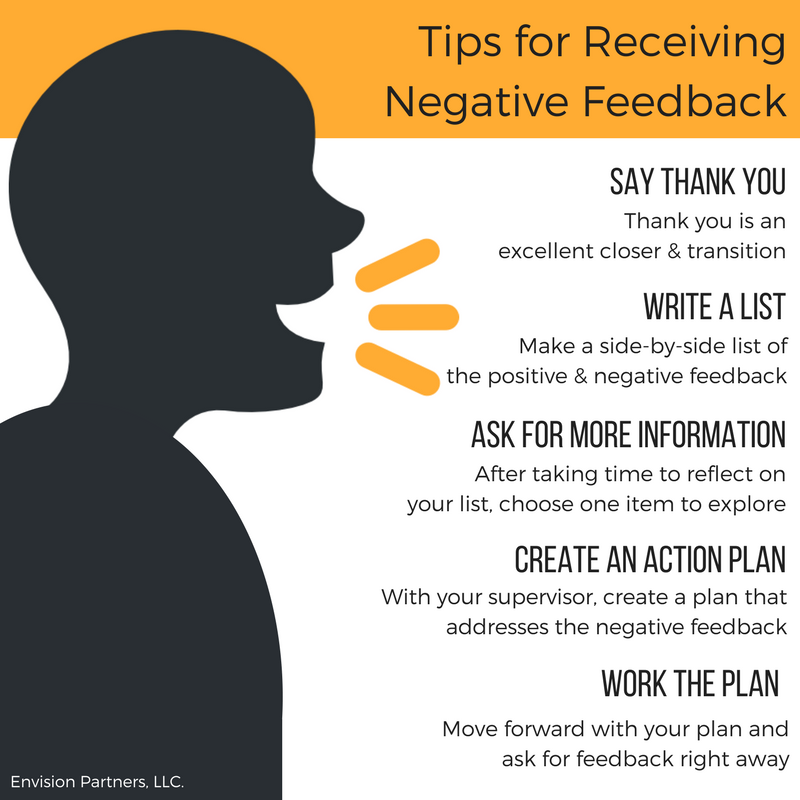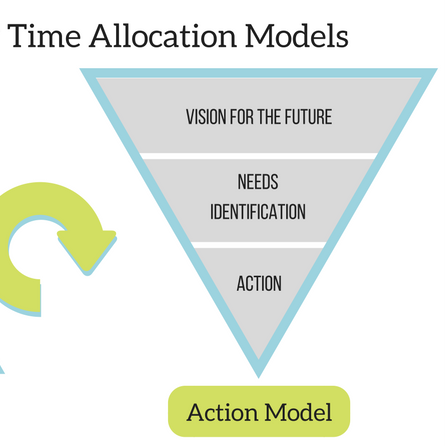It’s Not Over Until It’s Over
Maybe the only thing harder than giving negative feedback is receiving negative feedback. Let’s explore a few thoughts on responding to such feedback.
- Say thank you. Thank you is an excellent closer and transition. As much as we may want to, getting feedback does not require us to have immediate response. We do not have to be defensive, explain ourselves, or explore further in that moment. A delay is especially useful if we are emotional—and everyone is emotional about negative feedback—including the person giving it. A simple thank you recognizes that it was heard and signals moving on. And thank you shows gratitude—which I hope matches the intention of the feedback.
- Write a list. After a performance review, which likely has a mixture of positive and negative feedback, we have a tendency to begin focusing on the negative comments. Right? Over time these negative comments tend to become bigger and crowd out the positive comments. And sometimes we start to exaggerate the negative words that were spoken. Writing side-by-side lists of positive and negative comments from the feedback session will keep our mind from honestly over-inflating the negative comments. This step makes the feedback physical, tangible, so our mind cannot morph the feedback session into a big hairy beast that continues to impact our reflections of that session.
- Ask for more information. With time to honestly reflect on the feedback, you are probably in a better mindset to respond. From your list, choose one, maybe two, items to explore. Don’t do all of them. Go back to your supervisor, and ask to explore that one item. This might sound like, “I want to be sure I understand.” “Could you tell me more about….?” “Can you share an example of what that might look like, even if it’s not a real one….?” “What would it look like to do it right or better?” “Can I add some context around why I made that choice to understand where my thinking went wrong?” This is not a defense session. This is an opportunity to do better. Ask questions to clarify, not defend.
- Work together to create an action plan. In that moment, or after another thank you, work with the supervisor to create an action plan that specifically addresses the negative feedback. We should do most of the thinking work and bring specific questions to the supervisor, ask for input, and approval. This partnership shows you want to do better and creates accountability.
- Work the plan and ask for feedback right away. Don’t just go about trying the same activity, and only at the end find out you’ve failed again. Rather, with the plan in hand, move forward a bit and check-in with your supervisor or someone else to get feedback as to whether it appears you are moving in a better direction. Ask for the feedback before anyone gives it.
These thoughts do not only apply to negative feedback.
- Thank you is usually the best and easiest response to a compliment
- Writing a list of how awesome you are alongside a list of places for improvement keeps us humble.
- Learning why someone finds what you did useful keeps you repeating the right parts of the activity.
- Working on our strengths is as important as working on our weaknesses.
- If you ever find yourself wishing someone had given you feedback, it’s likely because you didn’t ask for it.











